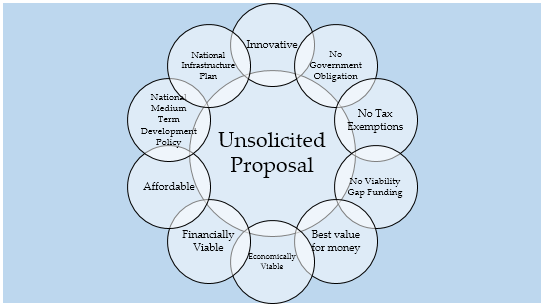In over a decade of commercial oil production in Ghana, the government and policy makers in the energy sector have been steadily working on the right formula to achieve that regulatory sweet spot where direct foreign investment converges with Ghanaian participation and content. The core objective has been to achieve the desired levels of state-of-the-art technology and technical know-how, technology and skills transfer, optimal in-country spend, value addition, job creation, and competitiveness in our upstream sector. The legal framework for Ghanaian content and participation in upstream activities started out originally as contractual commitments in petroleum agreements to employ and train Ghanaians, and to give preference to materials, services and products produced in Ghana which meet international industry standards. This has evolved into regulations – the Petroleum (Local Content and Local Participation) Regulations, 2013 (L.I. 2204) which has recently been amended by the Petroleum (Local Content and Local Participation) (Amendment) Regulations, 2021 (L.I. 2435). The purpose of these regulations is to further enhance and expand the opportunities for Ghanaian participation and value creation in the sector via three thematic areas: a redefinition of the indigenous Ghanaian company (IGC); alternative business arrangements for collaboration with foreign entities and a defined scope of services and goods to be reserved for supply solely by IGCs. This article highlights two of these new regulatory changes and the opportunities they present to the market.
Background to Local Content and Local Participation Regulations
The National Energy Policy 2010 (NEP 2010) highlighted “the need to build the necessary human, financial and technological capacity of Ghanaians to be able to participate fully in the petroleum industry”. The aim was to stimulate accelerated economic growth, job creation, poverty reduction and general prosperity among the Ghanaian people through the oil and gas industry. The NEP 2010 further concluded that: “[t]his can be achieved through a well formulated Ghanaian local content and participation policy and regulatory environment…”. This resulted in the enactment of L.I. 2204 with prescribed thresholds for local participation at the contractor level and, minimum local content and in-country spend at the supplier/subcontractor level.
Historically, the legal framework for upstream operations has always emphasised the employment and training of Ghanaians by foreign participants in the sector. However, under L.I. 2204, the indigenous Ghanaian company (IGC) was formally identified as a defined category of service provider through which the local content and local participation goals may be realised. Initially, the IGC was an entity incorporated in Ghana with a minimum of 51% Ghanaian equity holding, 80% Ghanaian executive and senior management staff and 100% Ghanaian non-managerial staff. To help achieve the local content and participation objectives of the NEP, L.I. 2204 afforded IGCs specific advantages over joint venture companies (JVCs) and international oil companies (IOCs) including:
(a) entitlement to preferential treatment in the award of petroleum agreements and petroleum licenses;
(b) the opportunity to own up to 5% in all petroleum interests granted by the State;
(c) entitled right to a 10% price preference in the award of contracts for the provision of goods and services for upstream operations;
(d) the right to a minimum of 10% shares in all companies authorised to supply goods and services in the sector; and
(e) the exclusive right to supply specific services in the sector such as legal, financial and insurance services.
The amendment under L.I. 2435 is intended to maximize Local Content & Local Participation in the energy sector in accordance with the National Energy Policy 2020. The key areas are the expanded Ghanaian participation in IGCs and the new mechanisms for collaboration with foreigners which have been analysed below.
- a) Expanded Ghanaian Participation in IGCs
Under L.I. 2435, an IGC has been redefined to require incorporation in Ghana with a 100% Ghanaian equity holding, 80% Ghanaian executive and senior management staff and 100% Ghanaian non-managerial staff. This new regime presents a shift from majority Ghanaian ownership to full Ghanaian ownership. The IGC is now truly Ghanaian in substance and form with unprecedented access to various opportunities in the sector, notably the exclusive right to provide an expanded range of services and goods, including electrical equipment and materials, industrial and domestic gases, network installation and support services, ship chandelling, warehousing, etc. With the recent change in the IGC shareholding structure, former IGCs with foreign interests which hitherto could benefit from the above listed advantages will now give way to wholly Ghanaian owned businesses. This may lead to an increase in participation of IGCs in the various roles as contractor party and service provider as discussed below.
- The IGC as a contractor party
Following the enactment of L.I. 2204, about 11 out of the 14 petroleum agreements awarded by the State include IGCs as contractor parties. This new IGC regime seeks to better protect Ghanaian interests and expand the opportunities for Ghanaian participation by eliminating the possibility of indirect foreign interests in the 5% participation interest reserved for Ghanaians. With this key change, Ghanaian owned businesses have an enhanced opportunity to increase their investments, build capacity, and optimize technology and skills transfer to grow the upstream sector. The change also presents an opportunity for IGCs to prepare their businesses, forge partnerships, pool resources and scale up to attract the funding required to cover the IGC share of capital expenditure required for petroleum operations.
- IGC as a service provider
Currently, the Petroleum Commission has registered over 1600 IGCs, with approximately 600 actively operating in the service segment of the upstream sector. Under L.I. 2204, IGCs are entitled to first preference in the bidding process for the supply of goods and services. Additionally, during a bidding process, an IGC cannot be disqualified exclusively on the basis that it did not offer the lowest price. Where the difference between the total value of the bid of a qualified IGC and the lowest bid does not exceed 10% of the lowest bid, the contract must be awarded to the IGC. Essentially, an IGC should be prioritized over a JVC in a tender where the IGC’s bid price is at most 10% higher than the quote from the JVC. This price preference is aimed at maximising local content in all aspects of the industry value chain to boost the capacity and competitiveness of Ghanaian owned entities in the upstream market. Today, with the new mandatory shareholding structure, many of the existing IGCs will lose their IGC status and the right to the above-mentioned statutory benefits. These advantages are now available to only Ghanaians. This will lead to the exit of former IGCs with foreign interest or their transformation into wholly owned Ghanaian entities which will create room for more wholly owned Ghanaian businesses to participate in this competitive market segment.
- Mechanisms For Collaboration with Foreigners
As previously stated, under L.I. 2204, foreign owned businesses may only supply goods and services in the upstream sector in association with IGCs, via a registered JVC where the IGC holds a minimum of 10% shares. The impact of the mandatory requirement for collaboration between foreign owned businesses and IGCs in the upstream service segment has been revolutionary in promoting capacity building through knowledge and skills transfer to Ghanaian entities from their more experienced foreign partners. Although some JVCs have, for a myriad of reasons, been unsuccessful, they are in the minority. Through these collaborations, many Ghanaian entrepreneurs have seen radical growth in their capacity in their core area, as well as new insights and expertise in other emerging areas as a result of unprecedented access to greater resources, technology and finance. Many Ghanaian partners in JVCs now have access to new markets and have been able to scale up in spite of their limited capacity, giving them competitive advantage to generate economies of scalability.
In spite of the success of the JVC structure under LI 2204, experience over the 9 years of implementation has highlighted areas for improvement. The intervention by the Ministry of Energy and the Petroleum Commission with the introduction of alternative models and structures for collaboration under LI 2435 is most timely and will ensure a wider berth for knowledge and skills transfer in the upstream sector. The alternative structures provided under LI 2435 have been discussed below.
The Alternative structures
L.I. 2435 authorizes the use of channel partnerships and strategic alliances as complementary options to the JV structure in the provision of goods and services in the upstream sector. A channel partnership is usually established between a manufacturer or producer with another company such as a reseller, service provider, vendor, retailer or agent, to market or sell their services, products or technologies. A strategic alliance on the other hand refers to an arrangement between two or more companies to share resources to undertake a specific mutually beneficial project, while each party retains their corporate independence.
With the establishment of these alternative structures, the JV ceases to be the only channel through which both an IGC and a foreign entity can collaborate to provide services in the industry. The Petroleum Commission is mandated to exercise a discretion and give the appropriate direction to enable a foreign entity or an IGC provide services in Ghana through such arrangements where it is of the opinion that “a channel partnership or strategic alliance will deepen local content and local participation and maximize technology transfer to the IGC”.
The introduction of these alternative structures will allow more flexibility and efficiency in service delivery in the upstream sector. Through channel partnerships and strategic alliances, IGCs and their foreign partners may share resources to execute defined supply/service scope while each party retains their independence with no obligation to establish and register a company. Parties in channel partnerships and strategic alliances are able to bypass the strict formal requirement for setting up a JVC such as the incorporation of Ghanaian limited liability companies by both the IGC and its foreign partner and the registration of the JVC with the Ghana Investment Promotion Centre (GIPC). The partners are able to maintain their existing corporate structures while managing their roles and responsibilities through contractual arrangements.
These new regulations provide a tremendous improvement on the existing framework for local content and open up the upstream service/goods supply space with unprecedented opportunities for more IGCs to participate in the sector, improve their product offerings and grow their skills and capacities.
Conclusion
The new IGC requirements and the introduction of alternative structures present greater opportunities for Ghanaians to benefit from the upstream oil and gas industry. Whilst the regulations provide the framework, the full potential of this new regime will not be achieved unless Ghanaian participants adopt the right legal structures and contracts for their engagements in oil and gas operations. This will require seeking and offering the right legal advice, not only in setting up of their businesses, but in the drafting and negotiating of contracts.



